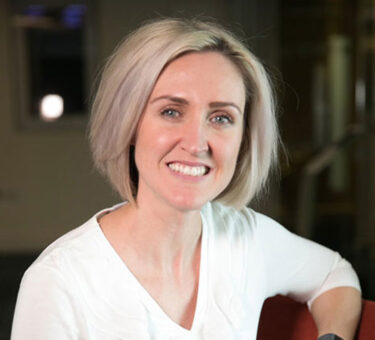The importance of talking about suicide and how companies like Wates are supporting organisations such as the suicide prevention charity Papyrus, which aims to prevent suicide among young people.

TALKING SAVES LIVES
Wates encourages colleagues to help create ‘suicide safer communities’, where they can talk openly and less secretively about suicide.
Suicide is one of those subjects that people don’t talk about. Although we have come a long way with mental health, we are still uncomfortable when it comes to openly talking about suicide. So, my message is: let’s talk about suicide and not fear the word.
The experiences of those who have attempted suicide tell us, that in most cases, the primary objective is not to end life, but to end the pain that they are currently feeling. So simply talking and listening to someone at the right time could help a person to rationalise their feelings, bring clarity to their thoughts, and to see some, if only a little, hope in a moment when they are seeing life as hopeless. There is an old saying that ‘a problem shared is a problem halved’ and as simple as it sounds, talking can save lives.

Men working in construction have the highest rate of suicide of any industry in the UK.
Wates encourages colleagues to ‘take a minute’ as UK suicide rates soar to highest levels in years

Those in need of support want to talk
From what we have learned directly from those brave people who are willing to talk about their experience and feelings of suicide, most people thinking about ending their life want to talk to someone about what they are thinking. What stops them talking about it is the stigma and shame that surrounds suicide.
The fact that, suicide was as an illegal act until 1961, and elements of law still refer to it as such, gives an indication of how it has been perceived. It is viewed as an ‘act’, without proper understanding.
Talking about suicide openly in a serious and sensitive manner will help break that stigma and allow those with thoughts of suicide the opportunity to talk about how they feel. For those thinking about suicide, it can be difficult and frightening to invite people in to help. Because of this, attempts to raise the issue may come across as a flippant comment, in the third person or said jokingly, in an attempt to gauge opinion before opening up. It is therefore important that any mention of suicide or any insinuation around ending life, is taken extremely seriously.
I have heard people say, “It’s just a cry for help – attention seeking”
Absolutely not.
It is an invitation to talk, and often too subtle for others to take seriously. But for the individual they are putting themselves out there, jumping up and down, waving their arms in the air in the hope that someone will notice them. When nobody does notice, it can reinforce negative thinking; that they don’t matter, that nobody cares, that the world would be a better place without them. So please, take every comment, concern or hunch seriously. Your instinct is telling you something.
We all have our own frames of reference, built by our beliefs, experiences and influences throughout our lives. As we don’t often talk about suicide our opinions around suicide can remain quite restricted and personal. Talking about suicide helps us understand the different opinions and experiences, which in turn helps our understanding and normalises our language to be more considerate. And this helps to break down the stigma.
Wates and suicide prevention
My job at Wates is all about people’s health, safety and wellbeing. It’s something we take extremely seriously as a business, and everyone is committed to our goal of zero harm. While we rightly focus on people’s safety on sites and in offices, we also care about their health and wellbeing, and this includes mental health.
It’s why we now have a network of more than 250 mental health first aiders, who are there to give support to those who need it, completely in confidence and without judgement. It’s why we’re also working with organisations like the suicide prevention charity Papyrus, who can help us to look out for the signals that someone may be considering suicide and to help us tackle discussions about suicide with sensitivity.
In addition, we currently have five people who have attended ASIST training (Applied Suicide Intervention Skills Training with plans to train a further 18 people across the business in 2020/21
Last word
Increase your awareness of suicide and get involved in being part of a suicide safer community in order help prevent the loss of a life.
- If you have been affected by the content of this blog, have concerns about yourself or someone else, please call the Papyrus HOPEline on 0800 068 41 41.






